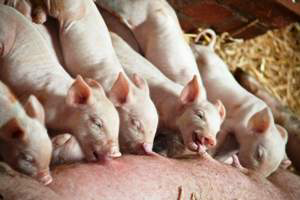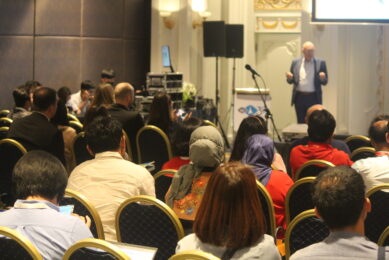Research: Value of compensatory feeding

Compensatory feeding, a method sometimes used by pig producers to increase weight in growing pigs could actually be less beneficial to mammary gland development and milk yield of sows than has long been thought, according to a study.
The method involves restricting the amount of feed available for a period of time and then overfeeding. This causes the animal to eat more, thereby increasing growth.
A study reported in 1989 indicated that compensatory feeding during gestation could be beneficial to mammary gland development and milk yield of sows. However, Chantal Farmer and her colleagues at Agriculture Canada recently reported in the Journal of Animal Science very different effects of compensatory feeding of pregnant pigs.
“In the end of gestation, the amount of parenchymal tissue, which is the good tissue that secretes milk, was reduced in treated animals,” Farmer said. “They had lower backfat, lower body weight, and most importantly less parenchyma.”
Farmer said she thinks the type of fiber used in the sow diets may be the reason their results were different. “Our animals lost more weight, and I think that’s the reason why the animals did not have positive effects on mammary gland development. They lost a lot of weight, more than in the other study, and that may be due to the lower absorption of the fiber.”
These effects were observed during late gestation, but no negative effects on mammary gland development or piglet growth were found. Farmer said nursing appeared to overcome the negative effects observed during the gestation period.
“This shows for the first time that even if mammary glands are not as well developed at the end of gestation, it may be that the piglets suckling manages to stimulate the mammary gland enough so that at the end of lactation there is no more difference,” Farmer said.
The question of whether compensatory feeding improves mammary gland development remains unanswered. Farmer said further research is needed to determine whether different durations of compensatory feeding or varying degrees of diet deprivation have any positive effects.
The research article, “Impact of diet deprivation and subsequent over-allowance during gestation on mammary gland development and lactation performance,” can be read in full at journalofanimalscience.org.











